June 9
Cole Porter
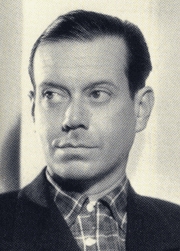
On this date in 1891, Cole Albert Porter was born in Peru, Indiana, to Sam Porter and Kate Cole Porter. He began studying piano at age 6, wrote his first song at age 10 and was class valedictorian at Worcester Academy in 1905. He graduated from Yale, where he wrote many college productions and performed with the glee club. Although he was gay, Porter married the woman who became his lifelong best friend, Linda Thomas, in 1919, and they remained together until her death in 1954.
Porter’s sophisticated, romantic and witty songs include: “I Get a Kick Out of You,” “You’re the Top,” “Begin the Beguine,” “Anything Goes,” “Night and Day,” “I’ve Got You Under My Skin,” “You Do Something to Me,” “In the Still of the Night,” “You’d Be So Nice to Come Home To,” “All of You” and “Friendship.” His musicals included “Kiss Me Kate” and “Can-Can.” He wrote the music for such movies as “Silk Stockings” and “High Society” (starring Grace Kelly and Bing Crosby).
In 1937 he had a tragic horse riding accident, fracturing both legs, which left him with debilitating pain. One leg had to be amputated a year later. Friends, colleagues and biographers confirm that Porter was not religious. A woman who briefly dated him recalled him as “one of the most irreverent persons I’ve ever encountered, but so charming.” The several songs he composed referencing deities always referred to them pejoratively and as “the gods,” in plural. Musicals such as “Anything Goes” (“You’re a Nathan panning / You’re Bishop Manning / You’re broccoli”) raised the ire of religionists.
The tremendously successful tunesmith lived a lavish lifestyle and engaged in a lifelong battle with Puritanism and censorship. As is true for many musicians, “His art becomes almost a religion,” noted British poet Alfred Noyes. When Porter was admitted to the hospital for the final time, dangerously ill and miserable, friend Bobby Raisin overheard an encounter between him and the staff. When he was asked his religion, he replied, “Put down none.” The clerk asked, “Protestant?” Porter repeated, “Put down none.” (Quotes from Cole Porter by William McBrien, 1998) D. 1964.
© Freedom From Religion Foundation. All rights reserved.“Although later in life Cole briefly considered embracing religion, he was never a believer, and his several comments about his mother’s attachments to Peru churches were dismissive.”
— Porter biographer William McBrien, "Cole Porter" (1998)
Natalie Portman
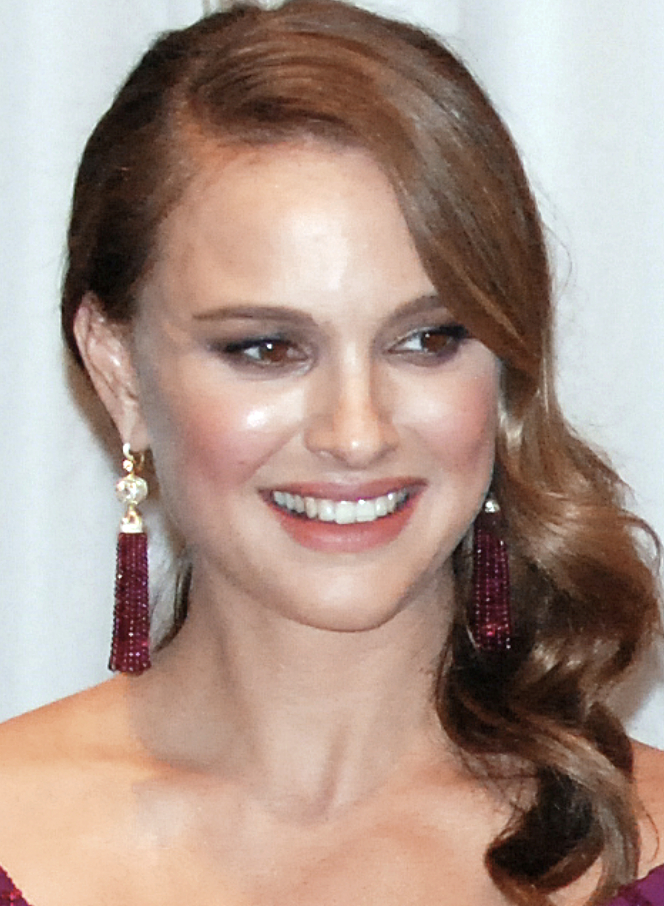
On this date in 1981, actress Natalie Hershlag (stage name Natalie Portman) was born in Jerusalem, Israel. Portman’s ancestors were Austrian, Russian, Polish and Romanian Jews. Some emigrated to Israel and others died in Auschwitz. Portman’s parents met in the U.S. at Ohio State University. When she was 3 they moved to Washington, D.C., where her father earned a medical degree and became a fertility specialist.
Starting at age 13, Portman landed roles in several popular films, including “The Professional” (1994), “Heat” (1995), “Beautiful Girls” (1996), “Mars Attacks!” (1996) and the musical “Everyone Says I Love You” (1996).
She gained international fame for playing Queen Amidala/Padmé in “Star Wars: Episode I” (1999) and had to skip the premiere to take her high school final exams. Portman reprised that role in “Star Wars” sequels in 2002 and 2005 and had powerful roles in hit films such as “Anywhere but Here” with Susan Sarandon (1999), “Where the Heart Is” (2000), “Cold Mountain” (2003), “V for Vendetta” (2006), “The Other Boleyn Girl” (2008), “Brothers” (2009) and “Black Swan” (2010), for which she won the Best Actress Golden Globe (2011) and the Best Actress Academy Award (2011). She won her first Golden Globe for her role in the 2004 hit film “Closer,” for Best Supporting Actress.
Portman, who has had several papers published in scientific journals, graduated with a degree in psychology from Harvard in 2003. In addition to her screen work, she is an accomplished stage actress, performing in “The Seagull” at the New York City Public Theater alongside Meryl Streep and Philip Seymour Hoffman (2001), and playing Anne Frank in the Broadway adaptation of “The Diary of Anne Frank” (1997).
Continuing to act and produce films in the 2010s, Portman was Oscar-nominated for her portrayal in “Jackie” (2016) of Jacqueline Kennedy after JFK’s death. She played a troubled pop star in the 2018 drama “Vox Lux,” for which she received praise.
Portman speaks Hebrew and has dual U.S.-Israel citizenship. In 2012 she married Benjamin Millepied, a French ballet dancer and choreographer whom she met on the set of “Black Swan.” They have a son, Aleph, born in 2011, and a daughter, Amalia, born in 2017.
PHOTO: Portman at the 2011 Academy Awards in Hollywood, Calif.
“I’m much more like the product of a doctor than I am a Jew. I don’t believe in [an afterlife]. I believe this is it, and I believe it’s the best way to live.”
— Rolling Stone magazine interview, "The Private Life of Natalie Portman" (June 20, 2002)
Johnny Depp
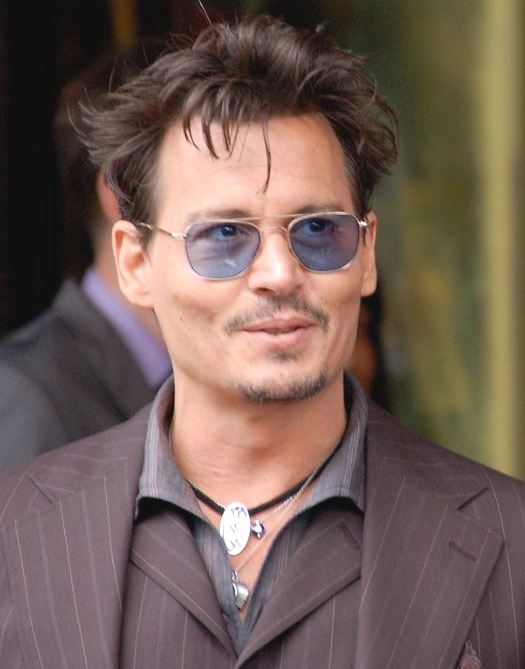
On this date in 1963, actor John Christopher Depp II was born in Owensboro, Ky., the youngest of four children of Betty Sue (Wells) Palmer and John Christopher Depp. His father, a civil engineer, left the family when Johnny was 15. He then dropped out of school. In a 1996 Playboy interview, Depp said he counted his mother’s waitress tips when she got home. He has “Betty Sue” tattooed on a heart on his left arm.
In the interview, he talked about his bible-thumping uncle: “That gave me an odd sense of religion. He was theatrical in the pulpit. He would start crying, praising the Lord. Pretty soon the adults were screaming hallelujah, getting on their hands and knees, crawling up to kiss his shoes, and I just didn’t buy it. I’m not saying my uncle was full of shit, because he was a good guy. I just didn’t like the duality — seeing him behave normally at home and a whole different way in the pulpit. It was too convenient.”
Depp fronted several rock bands, singing and playing guitar, keyboard and drums. On a trip to Los Angeles after he married his first wife, Lori Allison, and was working as a ballpoint pen salesman, he met Nicolas Cage, who convinced him to try acting. That led to Depp’s film debut in 1984’s “Nightmare on Elm Street.” A role in the TV series “21 Jump Street” made him a teen idol and led to Hollywood opening its doors to him further.
Collaborating for the first time with director Tim Burton in 1990’s “Edward Scissorhands,” he started carving a niche “as a serious, somewhat dark, idiosyncratic performer, consistently selecting roles that surprised critics and audiences alike,” according to the Internet Movie Database. As of this writing, Depp has 77 credited roles in films and TV. With his dark good looks, Depp is a perennial favorite on “sexiest” lists. He’s also on “wealthiest actor” lists, topping it in 2012 with an estimated $75 million in earnings.
Films featuring Depp have grossed over $3.1 billion in the U.S. and over $7.6 billion worldwide. He has three Oscar nominations and numerous Golden Globe nominations, winning the latter for Best Actor for demon barber “Sweeney Todd” in 2008. It was announced in early 2016 that Depp and his actress wife Amber Heard (he’s 23 years older) would both speak at the Reason Rally at the Lincoln Memorial in June. He and Heard divorced in 2017. Depp has two children with French singer/actress Vanessa Paradis: Lily-Rose Melody, born in 1999, and John Christopher III “Jack,” born in 2002.
After a six-week trial in 2022 on claims and counterclaims of defamation, a jury found Heard libeled Depp in a 2018 op-ed alleging domestic abuse. Depp was awarded $10.35 million in damages. The jury also found one of Depp’s lawyers defamed Heard and awarded her $2 million. The final resolution, in December 2022, awarded $1 million to Depp, who said he would donate it to charity.
PHOTO: By Angela George under CC 3.0.
LARRY KING: “Do you have faith?”
— Interview, "Larry King Live" (Oct. 16, 2011)
DEPP: “Yes. I have faith in my kids. And I have — I have faith, you know, that as long as you keep moving forward, just keep walking forward, things will be all right, I suppose, you know. Faith in terms of religion, I don’t. Religion is not my specialty, you know.”
Michael J. Fox
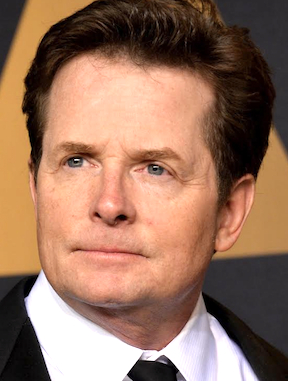
On this date in 1961, actor Michael Andrew Fox, known professionally as Michael J. Fox, was born in in Edmonton, Alberta, to Phyllis (née Piper), an actress and payroll clerk, and William Fox, a police officer and Canadian Forces member. After starring in the Canadian TV sitcom “Leo and Me” at age 15, he moved to Los Angeles.
Playing Alex P. Keaton on NBC’s popular “Family Ties” (1982-89) earned him three Emmy Awards and a Golden Globe. Producer Brandon Tartikoff opposed casting Fox because, according to Fox’s 2002 memoir Lucky Man, “How could someone that short (5’4″) have Michael Gross and Meredith Baxter Birney as his parents?”
He married “Family Tiies” co-star Tracy Pollan in 1988. They have four children: son Sam (b. 1989), twin daughters Aquinnah and Schuyler (b. 1995) and daughter Esmé (b. 2001). Pollan is Jewish and the children were raised in Reform Judaism.
Fox’s later roles, including on the ABC sitcom “Spin City” (1996–2000), brought him two more Emmys, three more Golden Globes and two Screen Actors Guild Awards. He had earlier adopted the middle initial J as a tribute to character actor Michael J. Pollard (C.W. Moss in “Bonnie and Clyde”). He starred in the feature film “Back to the Future,” which became a trilogy.
Numerous other movie roles include “Doc Hollywood,” “Bright Lights, Big City,” “For Love or Money,” “The American President” and “Mars Attacks!” His last major film role was in “The Frighteners” (1996). He was diagnosed with Parkinson’s disease in 1991 at age 29 and disclosed his condition to the public in 1998.
Since 1999, Fox has worked mainly as a voice-over actor. He founded the Michael J. Fox Foundation for Parkinson’s Research in 2000. It has raised over $1 billion for research. He has written three books besides Lucky Man: Always Looking Up: The Adventures of an Incurable Optimist (2009), A Funny Thing Happened on the Way to the Future: Twists and Turns and Lessons Learned (2010) and No Time Like the Future: An Optimist Considers Mortality (2020).
In No Time Like the Future,” Fox wrote that he is not a “subscriber to any particular orthodoxy,” called optimism “my faith” and said “I’m beginning to see that faith, or fear’s opposite, can be expressed as gratitude, which has always been the bedrock of my optimism.”
“Parkinson’s and alcohol took a sledgehammer to any illusions I may have had that I was in control. I came to accept that any disease or condition beyond my control is, in effect, a power greater than myself,” Fox wrote in Always Looking Up.
“To survive this destructive energy, I must look to an even higher power. For my purposes, I need neither define it nor have others define it for me, only accept its existence. It is evident in Tracy’s love and inexhaustible friendship, the toothless gap in Esme’s smile, Aquinnah’s grace, Schuyler’s grit, Sam’s intrepid curiosity. So much to savor, so much to be grateful for.”
PHOTO: Fox in 2017 at the 89th Annual Academy Awards in Los Angeles; Featureflash Photo Agency / Shutterstock.
TERRY GROSS: You know, you say that the last thing to go is the future, but some people believe that there is a future after death, that there’s an afterlife. Do you and did you ever believe that?
FOX: If I get to the bottom of the Cracker Jack box, then there’s a prize, I’m happy. But if there isn’t, I just enjoy the Cracker Jack. My happiness here doesn’t depend on something that it’s awaiting me after it. I don’t have a complex orthodoxy. I have a vague spiritualism that tells me if I live a good life, good things will happen. But I don’t have any expected reward or expected afterlife or anything like that. I just want to make the most of this life and make as positive of an impact I can on people around me and be grateful for their love and attention and try to do something, you know, worthwhile and not counting on getting a do-over.
— NPR "Fresh Air" (Dec. 21, 2020)
Pat Maginnis
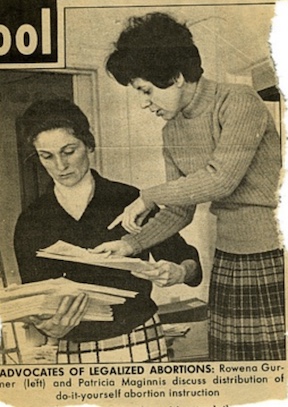
On this date in 1928, reproductive rights activist Patricia Therese “Pat” Maginnis was born to Miriam (Mansfield) and Ernest Maginnis in Ithaca, N.Y., where her father was attending Cornell University’s veterinary school. Her mother had been a school teacher. One of seven children, she grew up in a strict Catholic home in Oklahoma and attended a boarding school run by nuns.
She worked as a lab technician after graduation and then joined the Women’s Army Corps in 1950 after leaving a job at the Bureau of Mines. While stationed at Fort Bragg, N.C., an officer saw her walking with a Black soldier and she was reprimanded and sent to Panama as punishment. Trained as a surgical technician, she worked in Army pediatrics and obstetrics wards, where she saw women recovering from botched abortions and others forced to give birth to babies they didn’t want.
Leaving the Army, she attended San Jose State College in California and became pregnant. She went to Mexico for an abortion. She would end two other pregnancies with self-induced methods. “I don’t want children,” she said later. “I had seen enough overpopulation, starvation and human brutality and once told a boyfriend, ‘All I wanted was bed fun.’ ” She’d also witnessed the “many frustrations [her mother] took out” on her children. (NPR “Consider This,” Oct. 14, 2021)
She founded the Citizens Committee for Humane Abortion Laws in San Francisco in 1962. A few years later, she and Lana Phelan Kahn and Rowena Gurner started the Association to Repeal Abortion Laws, the forerunner to NARAL Pro-Choice America. Not long after that, her mother sent her a letter, wrote journalist Lili Loofbourow: “Dear Patricia,” the letter said. “I was thinking you must be about 40 years old. I do think you could do something besides teaching these girls to commit murder. P.S. If you come this way, do look us up. Love, Mother.” (Slate, Dec. 4, 2018)
The trio became known as the “Army of Three” for their civil disobedience campaign at a time when even mailing literature about birth control was illegal. They taught women how to safely induce abortions as an alternative to coat hangers, knitting needles, toxic household products or visits to unsanitary back-alley offices. Lists of qualified abortion providers in Mexico, Japan and Sweden were updated. (Go here for an interesting article on the “Che Guevara of Abortion Reformers.”)
They wanted a test case to test the San Francisco ordinance in court. Maginnis and Gurner were arrested in 1967 and convicted of unlawfully advertising abortion, but in 1973 a California appeals court deemed the convictions unconstitutional.
With the U.S. Supreme Court legalizing abortion that same year in Roe v. Wade, Maginnis put more focus on issues such as gay and animal rights and demanding accountability for clergy sex abuse. But she kept a close eye on reproductive choice. As a longtime member of FFRF, she was a valued ally of Anne Nicol Gaylor, FFRF founder and co-founder of the Women’s Medical Fund. Gaylor had started the ZPG Abortion Referral Service in 1970.
Gaylor and Maginnis both strongly believed that “abortion is a blessing” (the title of Gaylor’s 1975 book, available online here) — and that nothing should be allowed to interfere with a woman’s right to determine her own reproductive destiny. Maginnis and Kahn had published “The Abortion Handbook” in 1969.
Anti-abortion laws in the early 19th century were pushed by self-appointed moralists and enacted “to keep Grandma from becoming an alley cat,” Maginnis once opined. “[T]he religious sects … wish to control the whole country through whatever buying of political power they can, and I would be certainly able to name one such religious sect, which is the Roman Catholic Church, which has tremendous political power throughout the whole United States.” (Pacifica Radio, Jan. 7, 1970)
FFRF was the recipient of a modest and heartfelt Maginnis bequest when she died at age 93 in a hospital in Oakland, Calif. She died two days before Texas enacted a law banning abortions after the sixth week of pregnancy and 10 months before the U.S. Supreme Court overturned Roe. v. Wade. (D. 2021)
PHOTO: Maginnis (left) and Rowena Gurner at one of their DIY abortion classes c. 1963. (The newspaper photo caption had the names reversed.) Photo credit: patmaginnis.org.
“Religious politics have very definitely led to the deaths of millions of women, not just thousands but millions, over the years.”
— Interview, Pacifica Radio (Jan. 7, 1970)
Eddie Marsan
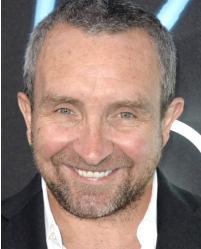
On this date in 1968, English actor Edward Maurice Charles Marsan was born in London’s East End, where he was raised. “My dad was a truck driver. My mum was a school dinner lady. Just solidly working class across the board. I served an apprenticeship as a printer, and then when I passed my apprenticeship, my boss, who was an alcoholic, said ‘In twenty years time, you can be where I am.’ ” (The Hollywood Interview, Dec. 8, 2008)
Though he’d left school at age 16 for the apprenticeship, that was not a future Marsan envisioned. He graduated in 1991 from the Mountview Academy of Theatre Arts and studied further at the Kogan Academy of Dramatic Arts. “I always knew I was interested in acting and would watch a lot of movies with my dad, who had very good taste in actors: Robert Duvall, Rod Steiger, Gene Hackman. … When I was a kid, a lot of young actors I knew would watch ‘On the Waterfront’ and study Marlon Brando’s performance, but I was always watching Rod Steiger, thinking that this guy is the real deal.” (Ibid.)
Marsan’s first television appearance, of which he has had many, was in 1992. He appeared in over 80 episodes from 2013-20 of all seven seasons of “Ray Donovan,” an American crime drama whose pilot episode broke Showtime viewership records. His film debut was in “The Man Who Knew Too Little,” a 1997 spy comedy starring Bill Murray. His movie roles include the main villain in the 2008 superhero film “Hancock” alongside Will Smith and as Inspector Lestrade in Guy Ritchie’s “Sherlock Holmes.”
His other films include “Gangs of New York,” “21 Grams,” “V for Vendetta,” “Miami Vice,” “Mission: Impossible III” and “Vera Drake” (2004), for which he won the British Independent Film Award for Best Supporting Actor. It tells the story of a working-class woman in 1950 who performs illegal abortions. He has been in three movies with Charlize Theron, including “Atomic Blonde” (2017).
Marsan appeared in 2021 as a Jewish anti-fascist activist in the four-part BBC-TV adaptation of the novel “Ridley Road.” He was subjected to what he called “relentless” anti-semitic abuse online. “[A]ll I did was play a Jew, I dread to think what would’ve happened if I was actually Jewish,” he tweeted. (Times of Israel, Oct. 16, 2021)
The British Humanist Association named him a Patron in 2015. “Our Patrons are talented individuals who have, in one way or another, made real contributions to the cultural, intellectual, or scientific progress of our species, just as humanists have done throughout history. Whether it’s by helping raise awareness of our campaigning work or by assisting us to promote public understanding of Humanism, our Patrons lend us the visibility and impact we need to achieve our aim of a secular state ensuring human rights and equality for all.” (British Humanist Association, Nov. 11, 2015)
On X, formerly known as Twitter, Marsan’s tagline is “Nothing human is alien to me.” Terence. (Publius Terentius Afer, playwright during the Roman Republic) “I see all these people talking about acting as a great spiritual thing,” says a quote attributed to Marsan on the Internet Movie Database. “It’s not. There’s no great mystery to acting. It’s a very simple thing to do but you have to work hard at it. It’s about asking questions and using your imagination.”
He married make-up artist Janine Schneider in 2002. They have four children: Tilly, Blue, Bodie and Rufus Marsan.
PHOTO: Marsan at the 2017 premiere for “Atomic Blonde” at The Theatre at Ace Hotel, Los Angeles; photo by shutterstock.com/Jaguar PS.
“I’m a Humanist because I believe that the cultural & religious identities that we construct for ourselves & their belief systems, although they may give us comfort, are illusionary. Morality & meaning come from seeing every human being as pure potential & of equal value.”
— Marsan's pinned tweet on X (Nov. 17, 2020)
